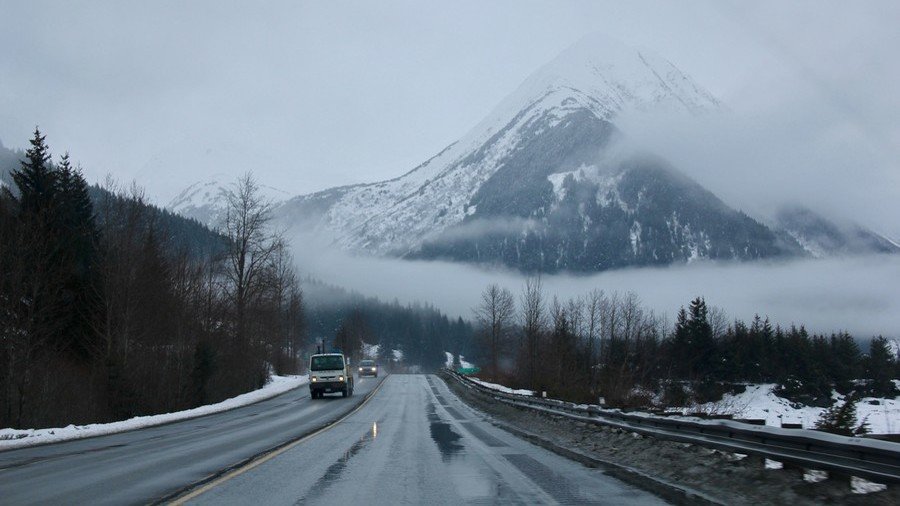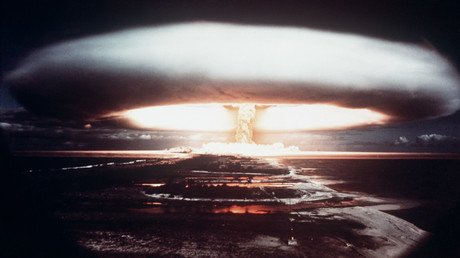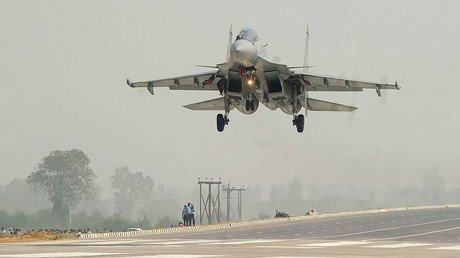Tit for tat: America mulls INF treaty dropout, Russia should ask Alaska back – expert

America’s disrespect of the INF treaty and other bilateral agreements gives Russia every right to withdraw from the 1867 deal on handing Alaska over to the US and demand the return of the land, historian Nikolay Starikov said.
In recent weeks, US President Donald Trump has been stressing his commitment to unilaterally abandon the landmark Intermediate-Range Nuclear Forces in Europe (INF) accord and build up American nuclear arsenal until Russia and China “come to their senses.”
No official announcement has been made, but Russian Foreign Minister, Sergey Lavrov, said that it’s “an objective fact” that the agreement, which is paramount to Russia’s national security, is about to become history.
The US is making attempts to justify its withdrawal by claiming that the 1988 INF treaty is outdated due to being signed in a different geopolitical reality; that Russia keeps violating the deal by developing banned hardware (though no proof of wrongdoing is provided); and that the pull out isn’t even targeted at Russia, but is required to counter the threat from China and other countries, which possess midrange missiles.
Moscow’s response in the current situation should be “declaring the possibility of Russia’s withdrawal from the deal on the handover of Alaska,” Starikov, the leader of Patriots of Great Fatherland movement, suggested in his fresh column.
The historian reminded that the deal, which made Alaska a part of American territory in exchange for $7.2 million one and a half centuries ago, was a cession of rights, but not a sale.
The agreement speaks about assigning the territory [to the US], but doesn’t specify for how long, meaning that the ‘for eternal times’ formula, which is traditional for diplomatic treaties, is absent here.
The Kremlin should explain its move using the same arguments and logic employed by the Americans regarding the INF treaty, he said.
According to Starikov, Russia should insist that the deal on the Alaska handover to the US “is outdated because it was signed in another geopolitical reality;
- the US is itself responsible for breaking up the deal as it not just constantly violates all possible agreements, but this deal in particular (the Americans haven’t yet fulfilled all of its obligations.);
- Russia’s withdrawal from the deal isn’t directed against the US, but aimed at expanding Russia’s trading opportunities, which would make it more convenient to compete with China in the terms of trade;
- Russia, as the successor of the USSR, is ready to refund $7.2 million to the US and, by withdrawing from the cession deal, return Alaska under its jurisdiction;
- being a persistent champion for human rights and protector of the property rights of the heirs of the owners of the Russian-American Company, which developed and managed our overseas territories, Russia is forced to recognize the 1867 agreement with the US as null and void and declare its withdrawal from it.”
READ MORE: A new arms race has begun – Gorbachev on Trump's INF pullout plan
With the area of 1,717,856 kilometers and the population of around 740,000, Alaska is a US state, located in the northwest extremity of the Northern American continent. It’s separated from the rest of the US territory by Canada, but has a maritime border with Russia.
Think your friends would be interested? Share this story!















